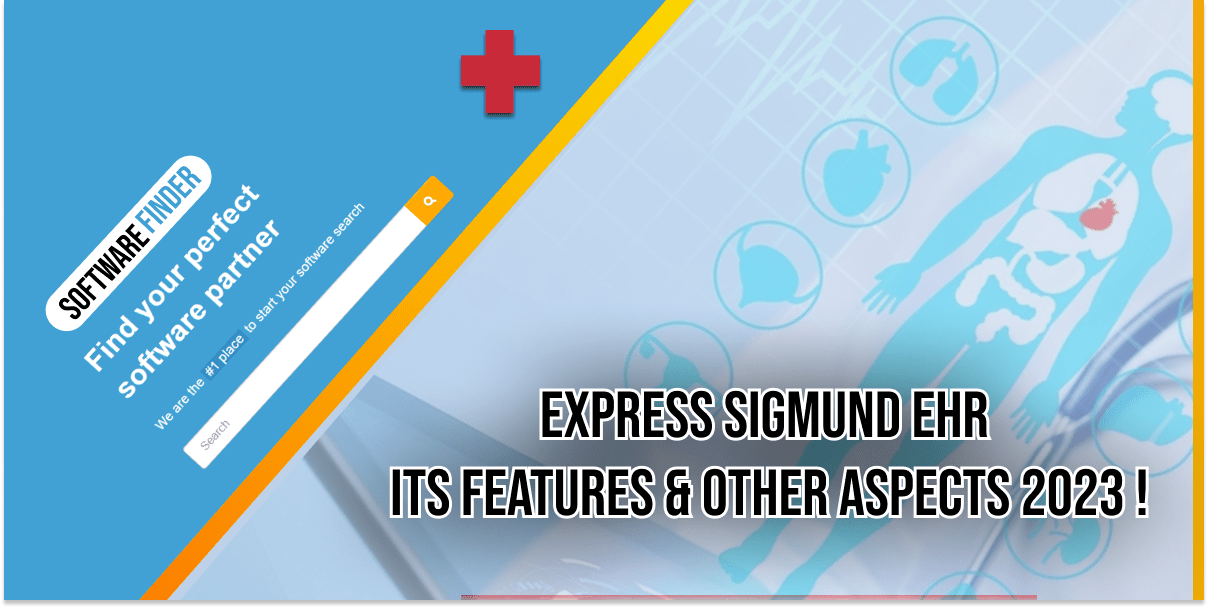Sigmund EHR Most Famous Theories and Concepts Explained
Sigmund EHR is a mental health software that has been designed to help mental health professionals with patient management, electronic health records, billing, and other administrative tasks. It is a cloud-based software that can be accessed from anywhere with an internet connection. In this article, we will review the features, pricing, step-by-step working, and pros and cons of Sigmund.
Features of Sigmund EHR
Sigmund offers a range of features that can help mental health professionals with their practice.
Some of the key features of Sigmund are:
- Electronic Health Records (EHR): Sigmund offers electronic health records that can be customized to suit the needs of the mental health professional. The EHRs are designed to be intuitive and user-friendly, making it easy for professionals to access and manage patient information.
- Patient Management: Sigmund provides tools for managing patient information such as appointment scheduling, patient history, notes, and progress tracking. The software also offers custom forms that can be used to collect information from patients.
- Billing and Insurance: Sigmund offers billing and insurance tools that can help mental health professionals to manage their finances. It has features such as automated billing, insurance verification, claims management, and electronic payment processing.
- Reporting and Analytics: Sigmund offers reporting and analytics tools that can help mental health professionals to gain insights into their practice. It has features such as customizable reports, data visualization, and data analysis tools.
- Telehealth: Sigmund offers telehealth tools that can be used to provide remote care to patients. It has features such as video conferencing, messaging, and appointment scheduling.
Sigmund EHR Pricing
Sigmund offers three pricing plans:
- Starter Plan: This plan costs $49 per month and includes features such as electronic health records, patient management, billing, and insurance.
- Professional Plan: This plan costs $99 per month and includes all the features of the Starter Plan, plus reporting and analytics tools.
- Enterprise Plan: This plan costs $199 per month and includes all the features of the Professional Plan, plus telehealth tools.
Step-by-Step Working:
The work of Sigmund is quite simple and straightforward.
Here is a step-by-step guide to using Sigmund:
Step 1: Sign Up
Visit the Sigmund website and sign up for an account. You will need to provide your name, email address, phone number, and some other basic information.
Step 2: Set Up Your Account
Once you have signed up, you will need to set up your account by entering your practice details and setting up your electronic health records.
Step 3: Add Patients
Once your account is set up, you can start adding patients by entering their information into the patient management system.
Step 4: Schedule Appointments
Use the scheduling tools to schedule appointments with your patients. You can also send appointment reminders and manage your schedule through the software.
Step 5: Manage Billing and Insurance
Use the billing and insurance tools to manage your finances. You can automate billing, verify insurance, manage claims, and process electronic payments.
Step 6: Use Reporting and Analytics Tools
Use the reporting and analytics tools to gain insights into your practice. You can customize reports, visualize data and analyze your practice data.
Step 7: Use Telehealth Tools
Use telehealth tools to provide remote care to your patients. You can use video conferencing, messaging, and appointment scheduling to provide care from anywhere.
Pros and Cons of Sigmund EHR
Like any other software, Sigmund has its pros and cons.
Here are some of the pros and cons of Sigmund:
Pros:
- Customizable Electronic Health Records: Sigmund offers customizable electronic health records that can be tailor to the needs of mental health professionals.
- Efficient Billing and Insurance Management: Sigmund’s automated billing and insurance verification tools can help mental health professionals manage their finances more efficiently.
- Reporting and Analytics: Sigmund offers customizable reports and analytics tools that can help mental health professionals gain insights into their practice.
- Telehealth: Sigmund’s telehealth tools can help mental health professionals provide remote care to their patients, making it more convenient for both parties.
- User-friendly Interface: Sigmund has an intuitive and user-friendly interface, making it easy for mental health professionals to use and navigate.
- Cloud-based: Sigmund is cloud-base software, which means it can be access from anywhere with an internet connection, making it more convenient for mental health professionals who work from multiple locations.
Cons:
- Pricing: Some mental health professionals may find Sigmund’s pricing plans to be on the higher side, especially if they are just starting out.
- Learning Curve: Like any software, Sigmund has a learning curve, and mental health professionals may need some time to get use to it.
- Limited Customization: While Sigmund offers customizable electronic health records, some mental health professionals may find that they cannot customize them to their specific needs.
- Lack of Mobile App: Sigmund does not currently have a mobile app, which may be inconvenient for mental health professionals who prefer to use their mobile devices.
- Limited Integrations: Sigmund currently has limited integrations with other software, which may be a drawback for mental health professionals who use other software in their practice.
Free Trial and Demo of Sigmund EHR
Sigmund offers a free 14-day trial for mental health professionals to try out the software and see if it meets their needs. They also offer a demo where potential users can schedule a live walkthrough with a Sigmund representative to learn more about the software and its features.
Closing Words
Sigmund is a powerful mental health software that offers a range of features to help
mental health professionals manage their practice more efficiently.
Its customizable electronic health records, patient management tools, efficient billing and insurance management,
reporting and analytics, telehealth tools, and a user-friendly interface make it a great choice for mental health professionals.
However, its pricing, learning curve, limited customization, and lack of mobile app,
and limited integrations may be drawbacks for some mental health professionals.
Nonetheless, its free trial and demo make it easy for potential users
to try out the software and see if it meets their needs.
Overall, Sigmund is a valuable software for mental health professionals so must try this and,
who want to streamline their practice and provide better care to their patients.





